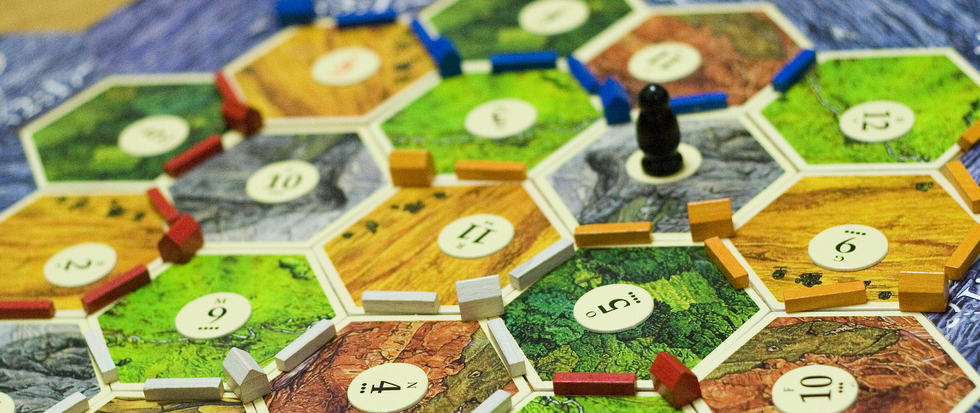
Heavier Things
Logic dictates that everyone needs to start in the same state for a game to be fair, but the truth is that asymmetrical design can result in some of the most fun board game experiences out there when balanced properly. Asymmetry lets players play slightly different games with each other at the same time while needing to simultaneously pay attention to what everyone else is doing, enacting your game plan while messing with everyone else’s. This dynamic is so deeply layered that the most complicated games tend to employ asymmetrical design as a default state of being, especially historical wargames, piling complexity on top of complexity. Because of this, most players shy away from this subgenre of the hobby just because of how intimidating these games can be to learn.
Which is a shame, because once you understand the large number of rules, they can offer some of the deepest, most rewarding play sessions you can have in the hobby. GMT’s Virgin Queen, designed by Ed Beach of Civilization 6 fame, is a prime example of just how pleasingly dense a wargame can be. You play as one of six different empires during the tumultuous emergence of the Reformation. Each empire has different things they’re good at, different initial positions on the board, and even different victory conditions in some cases.
Many of these differences lay at the divide between Catholicism and Protestantism. The eastern front of the titular wars of religion slams four different powers together, almost establishing two sets of natural allies from the get go: Spain and France for Catholicism, and England and the Dutch/Huguenots (which are played together under the banner of Protestants) representing the Reformation. The eastern conflict focuses on the tug of war between the two sects as Protestants try to convert areas away from Catholicism, while the Catholic-aligned countries are trying their best to suppress this new heresy.
This struggle is marked by a board that keeps track of how many Protestant-aligned areas there are on the map at any given moment. If there’s ever 50 stable Protestant territories, the Dutch/Huguenots win. If there’s ever less than nine, then either France or Spain wins based on how many Protestant territories are in France and Scotland. England, Spain, and the Protestants also get victory points based on the position of this track. Meanwhile, the Holy Roman Empire is betting on which side will gain the upper hand in the religious conflict, and if they’re right, they get a huge amount of victory points. Finally, the Ottoman Empire isn’t concerned at all with this religious struggle, focusing instead on piracy and naval supremacy.

The war part of Virgin Queen is something that everyone needs to stay mindful of, because it’s another path to victory. Each empire has certain territories called Keys that, when taken by enemy factions, can lead to a big victory point boost, and if you capture enough of them, you can automatically win the game. You don’t ever want to neglect taking and holding Keys even if that’s not the victory condition you’re currently going for. Normally, powers can recruit armies through cards that grant points that can be spent towards putting units on the board, but here too do we see a bit of asymmetry, as the Protestant power can take territory and place units by starting rebellions in Protestant religious-controlled territories, a fantastic nod to what was really happening during the Reformation.
Virgin Queen’s asymmetry allows it to portray historical events in a way that captures the uneven ground that each of these powers found themselves on during this time of conflict. Everybody has different agendas that they’re working on, which is mirrored through the dizzying number of ways you can win in the game. Aside from religious and military victories, you can win by victory points for doing things like marrying off your nobles (unless you’re the Ottomans, who don’t care about such things), commissioning artists and scientists, winning foreign wars, assassinating leaders, emerging victorious in the Dutch Revolt, and, yes, taking Keys. With so many interlocking systems and subsystems to keep track of, you start to feel like you’re really taking control of these powers, immersed in all the intrigue and bloodshed that the Reformation brought with it.
The best part of Virgin Queen, and the part that allows this multifaceted gem to really shine, is the Negotiation Phase, where you talk one-on-one with the other powers and attempt to make deals that would be mutually beneficial, offering up things like cards, promises to play cards or move troops, or even loans of entire fleets. Talking to people about pieces of each other’s plans and trying to craft your next move based on what you heard illustrates just how open-ended a board game can be while still immersing you in a time period of tumultuous historical happenings.
I haven’t even scratched the surface of everything that Virgin Queen does, but then, that’s why you play it. You want to see six different empires with different agendas and strengths bouncing off of each other. You want to react to what these powers excel at as well as the dizzying array of potential strategies that each player can go for. Most of all, you want to spend a day exploring this box that’s bursting with possibility to discover only a fraction of what Virgin Queen has to offer.





